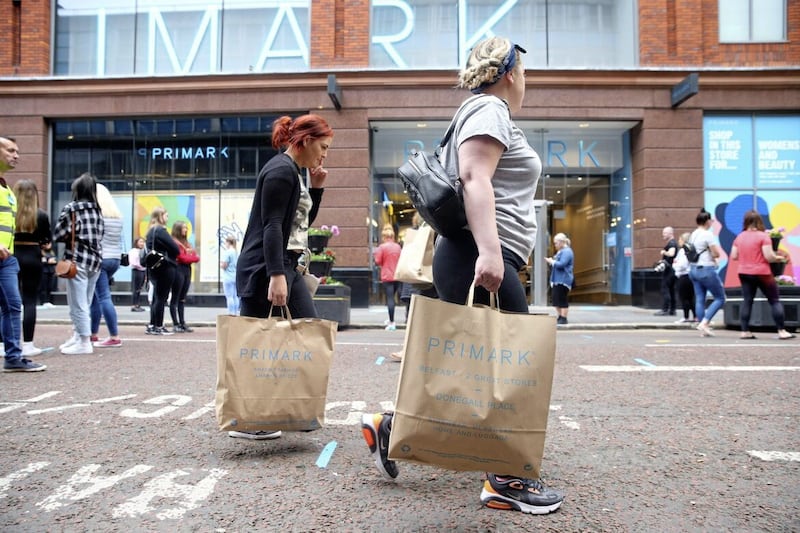Jeremy Hunt has accused Labour of “the biggest-ever assault on our economic competitiveness”.
Opening a Commons Budget debate on Thursday, the Conservative shadow chancellor confessed he liked “neither” the 2022 mini-budget during Liz Truss’s premiership nor the tax and spend plans which Chancellor Rachel Reeves unveiled this week.
But Mr Hunt himself faced allegations of a “dereliction of duty” from Cabinet Office minister Pat McFadden, who described Labour’s approach as “investment and reform together” and pointed to “a hospital building programme brought from fiction to reality”.
The shadow chancellor said: “Without remorse and without hesitation, a triumphalist Government has ripped up the pre-election promises they made in the biggest-ever assault on our economic competitiveness since the 1970s.
“Let’s look at the promises cast aside so casually. The Chancellor said she would not change the debt target because – her words – ‘I’m not going to try to fiddle the figures or make something different to get better results’. Yesterday, she did exactly that.”
Mr Hunt added: “When we said in the election taxes would go up by £2,000 per household over four years the Prime Minister (Sir Keir Starmer) accused (former prime minister Rishi Sunak) of a deliberate lie. Three months on, they will not go up by £2,000 over four years, they will go up by £2,000 every year.”
Asked by Liberal Democrat MP Max Wilkinson whether he preferred the 2022 mini-budget or Labour’s approach, he replied: “I actually like neither.
“I was the person who reversed the decisions made in the mini-budget, but I will say this, at least Liz Truss wanted to grow the economy and said so explicitly.
“What we had yesterday is a Budget where the Government’s official forecaster said the impact would be lower growth. It will mean fewer jobs, lower investment.”
Responding, Chancellor of the Duchy of Lancaster Mr McFadden described “announcements made with no money set aside” under the previous Conservative administration.
He said these included “an asylum and hotel bill funded by emptying the country’s reserve within the first few months of the financial year, hospital building programmes announced without the necessary funds set aside”, and “compensation schemes announced (for the infected blood and Post Office Horizon IT scandals) without the full funds being set aside to pay for them”.
Conservative MP Alicia Kearns (Rutland and Stamford) uttered “no one believes you” from the back benches as Mr McFadden continued: “This was an irresponsible dereliction of duty that has left us picking up the pieces.”
Mr McFadden later pledged “more NHS appointments to get the waiting lists and times down, more technology to improve productivity, more prevention to stop people falling ill in the first place, new surgical hubs and diagnostic centres, a hospital building programme brought from fiction to reality, this time funded on more than hot air, new schools to help children learn, more teachers to bring out the best in every child, more investment in further education to give children the skills that they need, investment and reform together”.
Mr McFadden said: “Budgets are about choices and yesterday, they chose. (Mr Sunak) railed against our new investment rule and more members opposite have spoken out since, so what does that mean that their position is?
“New money for housing? Opposed. New money for schools? Opposed. New money for potholes? Opposed. New money for research? Opposed.”
Sarah Olney, Liberal Democrat Cabinet Office spokeswoman, warned “the cost-of-living crisis will not be solved by hitting families, pensioners, family farms, struggling small businesses, and our economy will not grow strongly again unless we repair our broken relationship with Europe”.
She admitted Labour had “inherited a mess” but added: “While I’m pleased to support many of the announcements made by the Chancellor yesterday, I’m concerned by the Chancellor’s decision to raise employers’ national insurance.
“I fear that this will be deeply damaging to many already struggling small businesses and care providers, so we urge the Government to at least consider exempting social care from the employers’ national insurance tax rise.
“The Chancellor has provided extra funding for the NHS and other public sector organisations to cover the cost of the tax rise, however, the vast majority of care providers are in the private sector and so won’t benefit from this help.”
On investment decisions, Ms Olney called on the Government to set out a timeline for their “delivery”.
Conservative MP Andrew Rosindell criticised the Government’s “managed decline” mantra and warned against a return to “red-blooded socialism”.
The Romford MP said: “The people of this country do not want and simply cannot afford a return to red-blooded socialism – discriminating against hardworking people, decimating our economy, destroying jobs, curtailing growth and restricting freedom.”
Labour MP Jon Trickett (Normanton and Hemsworth) said he “regrets” the increase in the bus fare cap from £2 to £3, adding: “It’s roughly, let’s say, £6 a day to get to and from work, five days a week it’s £30 a week, £1,500 a year in bus fares, to get to work and back. Now clearly that gives us a problem.”
He added: “If we are going to be raising bus fares, and that’s a decision that’s been made – I regret it by the way – but we need reform of the way buses are going to be operating, so they’re accessible to communities.”









